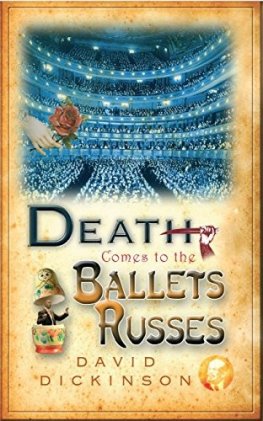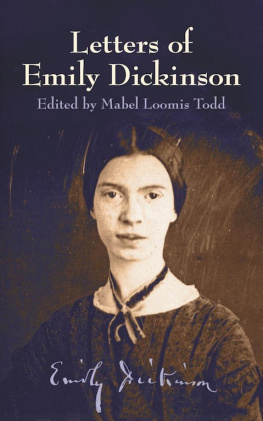David Dickinson - Death and the Jubilee
Here you can read online David Dickinson - Death and the Jubilee full text of the book (entire story) in english for free. Download pdf and epub, get meaning, cover and reviews about this ebook. genre: Detective and thriller. Description of the work, (preface) as well as reviews are available. Best literature library LitArk.com created for fans of good reading and offers a wide selection of genres:
Romance novel
Science fiction
Adventure
Detective
Science
History
Home and family
Prose
Art
Politics
Computer
Non-fiction
Religion
Business
Children
Humor
Choose a favorite category and find really read worthwhile books. Enjoy immersion in the world of imagination, feel the emotions of the characters or learn something new for yourself, make an fascinating discovery.

- Book:Death and the Jubilee
- Author:
- Genre:
- Rating:4 / 5
- Favourites:Add to favourites
- Your mark:
- 80
- 1
- 2
- 3
- 4
- 5
Death and the Jubilee: summary, description and annotation
We offer to read an annotation, description, summary or preface (depends on what the author of the book "Death and the Jubilee" wrote himself). If you haven't found the necessary information about the book — write in the comments, we will try to find it.
Death and the Jubilee — read online for free the complete book (whole text) full work
Below is the text of the book, divided by pages. System saving the place of the last page read, allows you to conveniently read the book "Death and the Jubilee" online for free, without having to search again every time where you left off. Put a bookmark, and you can go to the page where you finished reading at any time.
Font size:
Interval:
Bookmark:
David Dickinson
Death and the Jubilee
Prologue
London 1896
One nondescript room at the top of the War Office in London had become the nerve centre of the British Empire. It had two small windows that looked out over the rooftops of the capital, a threadbare carpet, a fading portrait of Queen Victoria over a mean fireplace, a battered desk and an ink-stained table.
But these cramped quarters were the focal point for one of the greatest movements of military personnel the world had ever seen. Tens of thousands of soldiers and cavalrymen were to sail across the globe on orders despatched from this bureaucratic command post.
This was the Planning Headquarters for the Jubilee Parade in honour of Victoria the Queen Empress on her Diamond Jubilee on 22nd June 1897, now a year and a quarter away. This was to be the grandest parade the world had ever seen, grander even than Roman triumphs through the eternal city two thousand years before. No captured chieftains or Oriental despots in chains were needed to adorn this procession. These were Victorias subjects, to be carried across the red-coloured map that marked the glory of her Empire. Hussars from Canada and carabiniers from Natal had to be transported, Hong Kong Chinese Police, Cypriot Zaptiehs, Dyak head-hunters from North Borneo, Malays and Hausas, Sinhalese and Maoris, Indian lancers and Cape Mounted Rifles, cavalrymen from New South Wales and Jamaicans resplendent in white gaiters. Fifty thousand troops were to march through London to a Service of Thanksgiving at St Pauls, a splash, an explosion of colour on the dull grey buildings of the capital, a heady and intoxicating draught of romance for the million citizens expected to wonder at their passing.
General Hugo Arbuthnot was the man in charge of this huge enterprise. He had been a soldier all his life, a life spent in the mundane details of military planning and administration. Not for him the glory of the cavalry charge or the heroic defences of the British Army in adversity. His campaigns were fought not with the sword but with pen and ink, fought on paper in committee meetings and the interminable boredom of staff work. From this unpromising terrain he had created an empire all his own. If some dashing general was faced with a complicated logistic problem he felt was beneath his talents, Arbuthnot was the man. If the Army wanted a vast feat of organizational complexity, Arbuthnot was the man. Above all, he was known as having a safe pair of hands.
But there was one cross he had to bear, as he repeatedly told his wife in their tidy house in Hampshire, the lawn always neatly trimmed, the roses punctually pruned, on his return from the daily grappling with shipping lines and the near insoluble problem of camel feed on requisitioned steamers. General Arbuthnot was also in charge of security on Jubilee Day. Security, he used to say, was not something, like cases of rifles or ammunition, that could be nailed down. It was slippery. It was elusive. And some of the people he had to deal with on the issue of security were, he felt, decidedly slippery, decidedly elusive.
This morning Arbuthnot had convened a meeting in his office of some of the key elements in the Whitehall jungle whose views had to be consulted. On his left sat the Honourable St John Flaherty of the Foreign Office, an exquisitely dressed young man whose diplomatic reticence was marred by a fabulous gold watch. Flaherty was renowned in diplomatic circles for the quality of his prose and the regularity of his affairs with diplomatic wives. On Arbuthnots right sat a harassed-looking Assistant Commissioner from the Metropolitan Police. Furthest away was Dominic Knox of the Irish Office, a short and wiry man with a small beard and a secret passion for the gaming tables. Knox had no official job title but wandered through the bureaucratic maze as a senior member of the Secretariat in Dublin Castle. Everyone round General Arbuthnots table knew that this was the foremost expert in Britain on terrorism, subversion and intelligence gathering in Ireland.
Perhaps, Mr Flaherty, you could enlighten us with the views of the Foreign Office? General Arbuthnot had little time for the Foreign Office, a talking shop full of milksops in his view.
Thank you, General, thank you. Flaherty smiled a condescending smile. I could burden you with the reports we have collected from our embassies round the world, gentlemen. Flaherty waved at a pile of cables in his folder as if it were a bad hand at whist. But I wont. The key fact is this, gentlemen. Assassinations since the time of Julius Caesar and before have always been home-grown affairs. Brutus and Cassius stabbed their fellow Roman on the Ides of March. Roman assassinates Roman. John Wilkes Booth shot his President Abraham Lincoln at the theatre in Washington. American assassinates American. Russians blew up their Tsar Alexander as he drove through St Petersburg in his carriage fifteen years ago. Russian assassinates Russian. In some parts of the Balkans and the Middle East, I believe, more rulers are assassinated than actually die in their beds.
In short, the most likely person to try to assassinate Queen Victoria or let off a bomb is an inhabitant of these islands, a Briton trying to assassinate a Briton. Madmen and fanatics from anywhere in the world cannot be ruled out of course, but you cannot legislate for the insane.
Quite so, said the General, looking up from the notes he had just made. Let me now turn to the position of the Metropolitan Police. Mr Taylor.
William Taylor, Assistant Commissioner, felt slightly out of place. He brushed his remaining hairs back across his forehead. He was a practical policeman. He had risen through the ranks from mundane police stations in Clerkenwell and Southwark, Hoxton and Hammersmith. It would be his task to issue the public order notices, to prepare the plans of his force for the maintenance of order on the day of the procession. The historical sweep of the Foreign Office world view left him cold.
Our position, General, is quite simple. We have increased our penetration of the various subversive societies that operate in and around the capital. You will recall that we were allotted extra monies for the purpose. We are still working on our security strategy for the week or so surrounding the Jubilee. At one point we considered banning the public from the roofs of all the high buildings along the route of the parade to St Pauls Cathedral, but the Home Office believe it would be politically impossible.
William Taylor winced slightly as he remembered the response of the Home Office Minister. Completely, totally and utterly impossible! Impossible! We are meant to be celebrating the glory and power of the British Empire! Are we so frightened that we have to have a flat-footed constable on every rooftop looking for assassins? What would they do if they saw one? Blow their whistles?
For the time being, General, Taylor went on, we watch and wait. We are in very close touch with our colleagues from the Irish Office, as you know.
A telephone was ringing insistently in the room next door. Noises of the great world beyond the windows infiltrated the War Office, clocks tolling, the rumble of traffic, the shouts of the delivery men. General Arbuthnot looked briefly at his favourite picture. It showed an enormous military parade at Aldershot, ranks of troops stretching without end towards a pale blue horizon. Not a button, not a plume was out of place. That was as it should be. General Arbuthnot had organized the parade.
Knox, the General said suddenly, you may be the last person to speak, but I am sure we all believe that your intelligence may be the most serious.
Thank you, General. Dominic Knox knew that the General did not care for him. He did not care for the General. Knox looked as if he might have been a priest or a philosophy don. Years of reading through the ambiguities of intelligence reports, of second or third or even fourth guessing the words and actions of his opponents had left him with severe doubts about the accuracy of language, written or spoken.
Font size:
Interval:
Bookmark:
Similar books «Death and the Jubilee»
Look at similar books to Death and the Jubilee. We have selected literature similar in name and meaning in the hope of providing readers with more options to find new, interesting, not yet read works.
Discussion, reviews of the book Death and the Jubilee and just readers' own opinions. Leave your comments, write what you think about the work, its meaning or the main characters. Specify what exactly you liked and what you didn't like, and why you think so.




